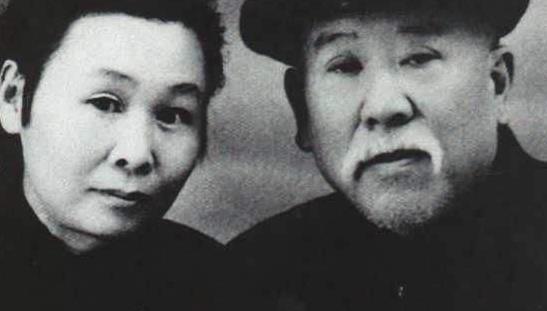As a special institution in the Republic of China period, they collected a lot of intelligence on Japan during the War of Resistance Against Japanese Aggression and made great contributions to helping China resist japanese aggression head-on, but also after the victory of the War of Resistance, they once again became executioners and wantonly slaughtered the revolutionary masses and some democratic party figures, leaving an extremely bloody side in history.

The head of the military command, naturally, is the most famous Dai Kasa, this person graduated from the sixth phase of the Whampoa Military Academy, it can also be regarded as the Huangpu department, but he did not go to the battlefield, but from the beginning of graduation, he specialized in the work of the espionage and intelligence department for Chiang Kai-shek, and later was ordered to form the Secret Service Organization Lixing Society in the Republic of China period, lixing Society was later renamed Fuxing Society, Dai Kasa became the president of the Revival Society, and after 1938, the Kuomintang secret service organization developed and grew. Together with several secret service organizations, the Fuxing Society also established the Military Statistical Survey Bureau of the National Government, which later became the military command.
As the dai who contributed the most, he should have been the best candidate for the bureau chief, but Chiang Kai-shek considered that Dai Kasa's seniority was too low, so he specially selected a person to serve as the director of the bureau and arranged for Dai Kasa to become the deputy director, but this bureau chief basically did not care about anything, it was the deputy director Dai Kasa who had the final say, and the director of this name was He Yaozu.
He Yaozu's seniority is higher than Dai Kasa, as early as the beginning of the 20th century, He Yaozu studied at the Japanese Army Non-Commissioned Officer School, after graduation in the Xiang Army, successively served as a military division commander, and later his unit was reorganized into the Independent Second Division of the National Revolutionary Army, He Yaozu served as the commander of the second division, although in the later struggle, He Yaozu gradually lost power, but still had a high reputation in the government at that time, so in 1935 He Yaozu was awarded the rank of lieutenant general.
In 1938, under Chiang Kai-shek's arrangement, He Yaozu was formally transferred to the post of director of the Military Command Bureau, and in fact, the reason why He Yaozu was transferred to this position, Chiang Kai-shek also had his own plans, because He Yaozu had always been very close to the Communist Party, and although he had repeatedly disobeyed Chiang Kai-shek's orders, Chiang Kai-shek had no choice but to stay with him.
Although nominally the director of the Military Command Bureau, he did not interfere in the military command secret service organization, and although Dai Kasa had great power, he also had great respect for this nominal superior, and He Yaozu also relied on his identity relationship to rescue the democrats many times; as Chiang Kai-shek's government became more and more authoritarian and dictatorial, He Yaozu also openly opposed it. He died in 1961 at the age of 73.